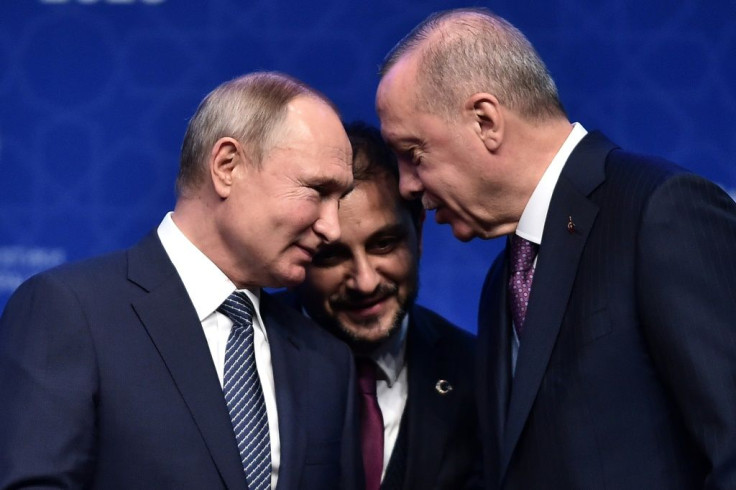Syria War News: Russia,Turkey Reach Ceasefire Agreement

Russian President Vladimir Putin and Turkish President Recep Tayyip Erdogan announced Thursday a ceasefire agreement to begin at midnight. The agreement also calls for a security corridor along an east-west highway in Idlib, a city in northwestern Syria.
Idlib is located about 59 kilometers (36 miles) southwest of Aleppo, which is the capital of the Idlib Governorate (administrative division). The security corridor will run 6 km (four miles) north and 6 km south from Idlib's key M4 motorway, which connects the government-held cities of Aleppo and Latakia. Joint Russian-Turkish patrols along M4 will begin on March 15 as part of the agreement.
The Syrian civil war has lasted nine years and claimed an estimated 500,000 lives. The major combatants are the Syrian Armed Forces and government under Syrian dictator Bashar al-Assad. They are supported by Russia, Iran, and Hezbollah (a Shia Islamist political party and militant group based in Lebanon).
Opposing them are the Syrian coalition, made up of several rebel groups and supported by Turkey with political, logistic and military support from the United States, Britain, and France along with other groups supported by Israel and the Netherlands. The picture gets blurrier because some of the rebel groups are fighting amongst themselves.
In the middle of this mess are the estimated 4.5 million Syrian civilians. 3.5 million are now in Turkey as refugees and another 1 million more are fleeing to the Turkish border after a December 2019 offensive by the government forces that killed 36 Turkish soldiers. Turkey responded by attacking Syrian troops leading up to the cease-fire announcement.
In addition to their proxy battles in Syria, Turkey and Russia have had some direct conflicts in recent years. In 2015 Turkey downed a Russian warplane. Russia retaliated with economic sanctions, cutting the flow of tourists to Turkey and banning most Turkish exports.
At the time Turkey ceded to Russia and backed down but now, Moscow needs Turkey as a partner to settle the Syrian situation and to maintain Russia’s military supply routes across the Turkish Straits.
Fox News reported that Putin expressed his hope that the ceasefire would be a “good basis for ending the fighting in the Idlib de-escalation zone, put an end to the suffering of the civilian population and contain a growing humanitarian crisis.” He also offered his condolences to Erdogan over the 36 Turkish soldiers killed in the December skirmish.
As to Erdogan, he said "The world’s eyes are on us. The steps we will take, the right decisions we will take here today will help ease [concerns in] the region and our countries,” according to the Fox News article of March 5.
Erdogan, as part of the agreement, opened Turkey’s borders to the 1 million new refugees as a gateway to Europe. He also demanded more assistance from Western nations to help clean up the mess from the violence in Syria.
© Copyright IBTimes 2025. All rights reserved.





















